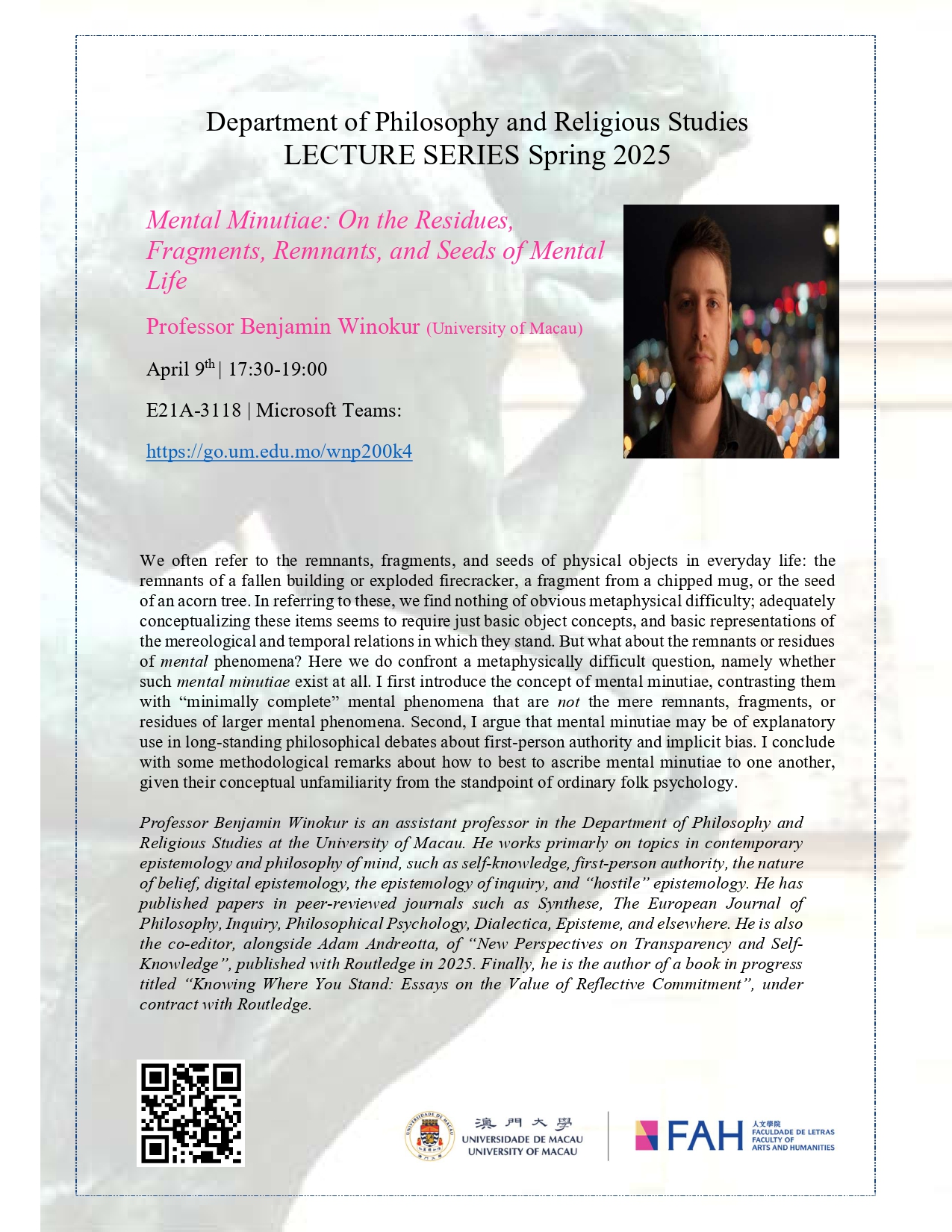

FAH/DPHIL Lecture Series – “Mental Minutiae: On the Residues, Fragments, Remnants, and Seeds of Mental Life” by Prof. Benjamin Winokur, University of Macau
2025-04-09 @ 5:30 pm ~ 7:00 pm
Microsoft Teams: https://go.um.edu.mo/wnp200k4
Abstract
We often refer to the remnants, fragments, and seeds of physical objects in everyday life: the remnants of a fallen building or exploded firecracker, a fragment from a chipped mug, or the seed of an acorn tree. In referring to these, we find nothing of obvious metaphysical difficulty; adequately conceptualizing these items seems to require just basic object concepts, and basic representations of the mereological and temporal relations in which they stand. But what about the remnants or residues of mental phenomena? Here we do confront a metaphysically difficult question, namely whether such mental minutiae exist at all. I first introduce the concept of mental minutiae, contrasting them with “minimally complete” mental phenomena that are not the mere remnants, fragments, or residues of larger mental phenomena. Second, I argue that mental minutiae may be of explanatory use in long-standing philosophical debates about first-person authority and implicit bias. I conclude with some methodological remarks about how to best to ascribe mental minutiae to one another, given their conceptual unfamiliarity from the standpoint of ordinary folk psychology.
Bio
Professor Benjamin Winokur is an assistant professor in the Department of Philosophy and Religious Studies at the University of Macau. He works primarly on topics in contemporary epistemology and philosophy of mind, such as self-knowledge, first-person authority, the nature of belief, digital epistemology, the epistemology of inquiry, and “hostile” epistemology. He has published papers in peer-reviewed journals such as Synthese, The European Journal of Philosophy, Inquiry, Philosophical Psychology, Dialectica, Episteme, and elsewhere. He is also the co-editor, alongside Adam Andreotta, of “New Perspectives on Transparency and Self-Knowledge”, published with Routledge in 2025. Finally, he is the author of a book in progress titled “Knowing Where You Stand: Essays on the Value of Reflective Commitment”, under contract with Routledge.

